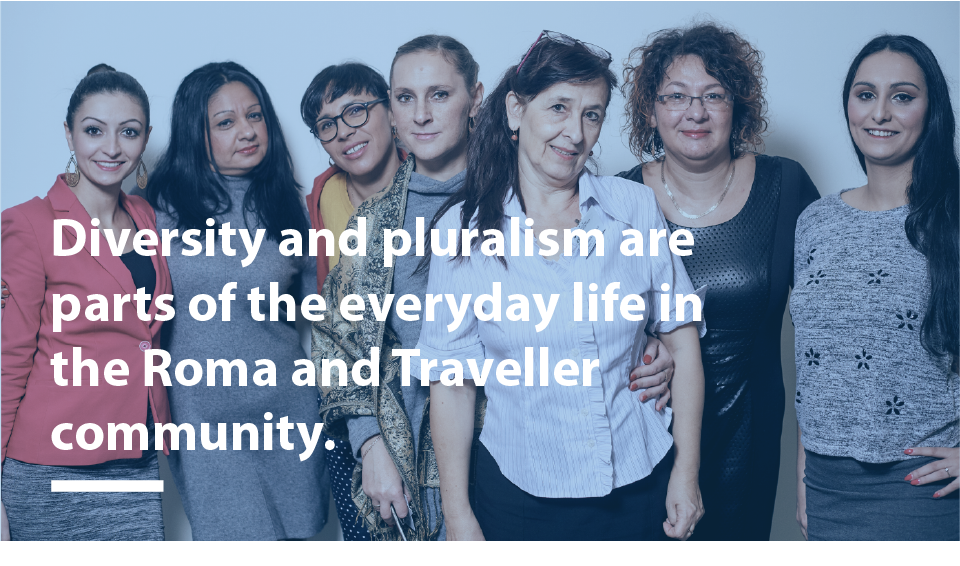Gender Equality
A large number of Roma and Traveller women and girls continue to face multiple discrimination in various areas, ranging from health to employment and education, amongst others. They also have limited opportunities to influence the policies that most concern them.
Gender equality is one of the Council of Europ’s core values. All people, in all their diversity, should be free to live their chosen life, thrive socially and economically, participate and take a lead as equals. Women and girls are key agents of development and change. Achieving gender equality and empowering women and girls is vital to building fair, inclusive, prosperous and peaceful societies everywhere.
The Roma and Travellers Team contributes to the mainstreaming of Roma and Traveller gender equality issues within the Strategic Action Plan on Roma and Traveller Inclusion (2020-2025) by promoting the empowerment of Roma and Traveller women and girls in all spheres, including political life, supports international Roma women’s networks, addresses reproductive rights, domestic violence and early marriages or human trafficking within Roma and Traveller communities.
Introduction

Diversity and value pluralism are natural parts of everyday life in the Roma and Traveller community. Therefore, there are also many different views on gender equality. A social change concerning education, occupational restructuring, and employment is currently affecting the entire community.
In their daily life, many Roma and Travellers find themselves under pressure caused by the respect of traditions on the one hand, and new expectations regarding gender role attributions coming from modern society and legitimate aspirations of Roma and Traveller women themselves, on the other hand. Thus, they have to try reconciling the two amid their family, relatives and the wider community.
Both Roma and Traveller women and men increasingly work in occupations in which they have rarely been seen before or in which the Roma and Travellers have traditionally not engaged at all. However, the stereotypes and prejudice towards Roma and Traveller women and men break down very slowly in the eyes of the rest of the population and not all Roma and Traveller men encourage the empowerment of women and girls in the community.
For example, some Roma and Traveller women may face sexist, old-fashioned and set views or even restrictions in career guidance or working life both from the majority population and male community members. People from the majority society have sometimes an out-dated image of gender equality among the Roma and Traveller, or assume they know what it is like and generalise it to apply to all Roma and Traveller women or men. However, family situations vary a lot between very traditional and very modern ones.
Women and youth
- Study Visit to the UK Forced Marriage Unit (United Kingdom, Finland, France, Greece, Ireland, Italy, Poland)
- Thematic report on Roma women’s empowerment and the gender dimension of national Roma inclusion strategies (Lithuania, Finland, Italy, Rep. Moldova, Spain)
- Thematic Report on Child/Early and Forced Marriages within Roma Communities in the context of the promotion of gender equality (Romania, Italy, Republic of Moldova, Netherlands, Poland, United Kingdom)
- Thematic report on addressing and combating human trafficking within Roma communities (Albania, Greece, Italy, Netherlands and Romania)
Host countries in bold
Pledge on political representation of Roma women
This pledge takes into account that electoral quotas are often an effective means of achieving significant, rapid progress, provided that they are correctly designed and consistently implemented. It invites political parties to promote gender equality and the participation of women from minority groups, in particular Roma and Traveller women, in decision-making bodies and in political representation in future European, national, regional and local elections.




